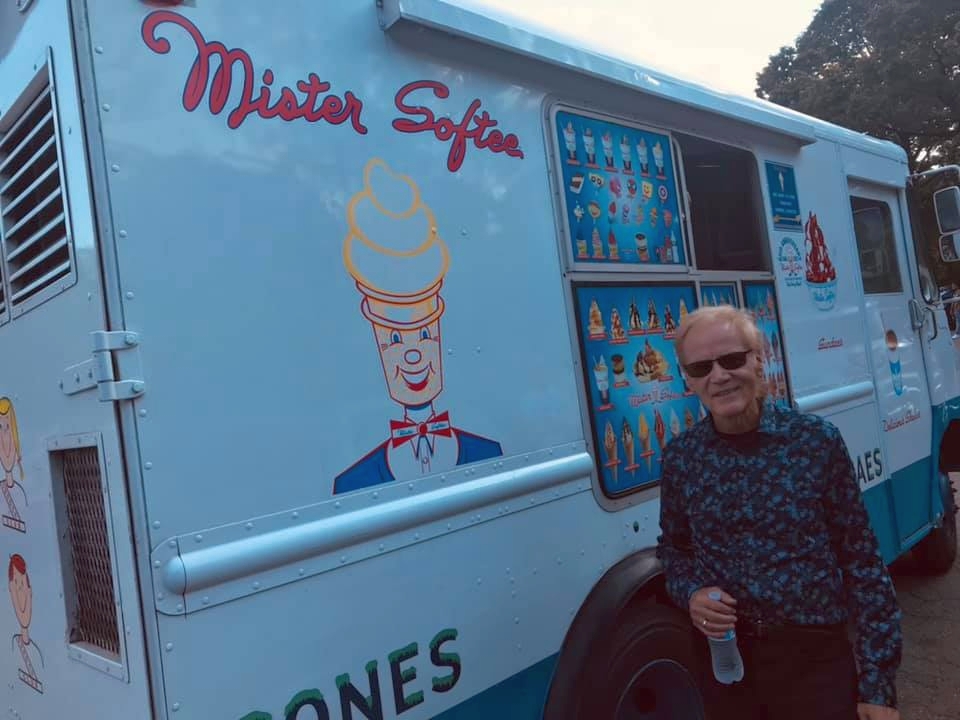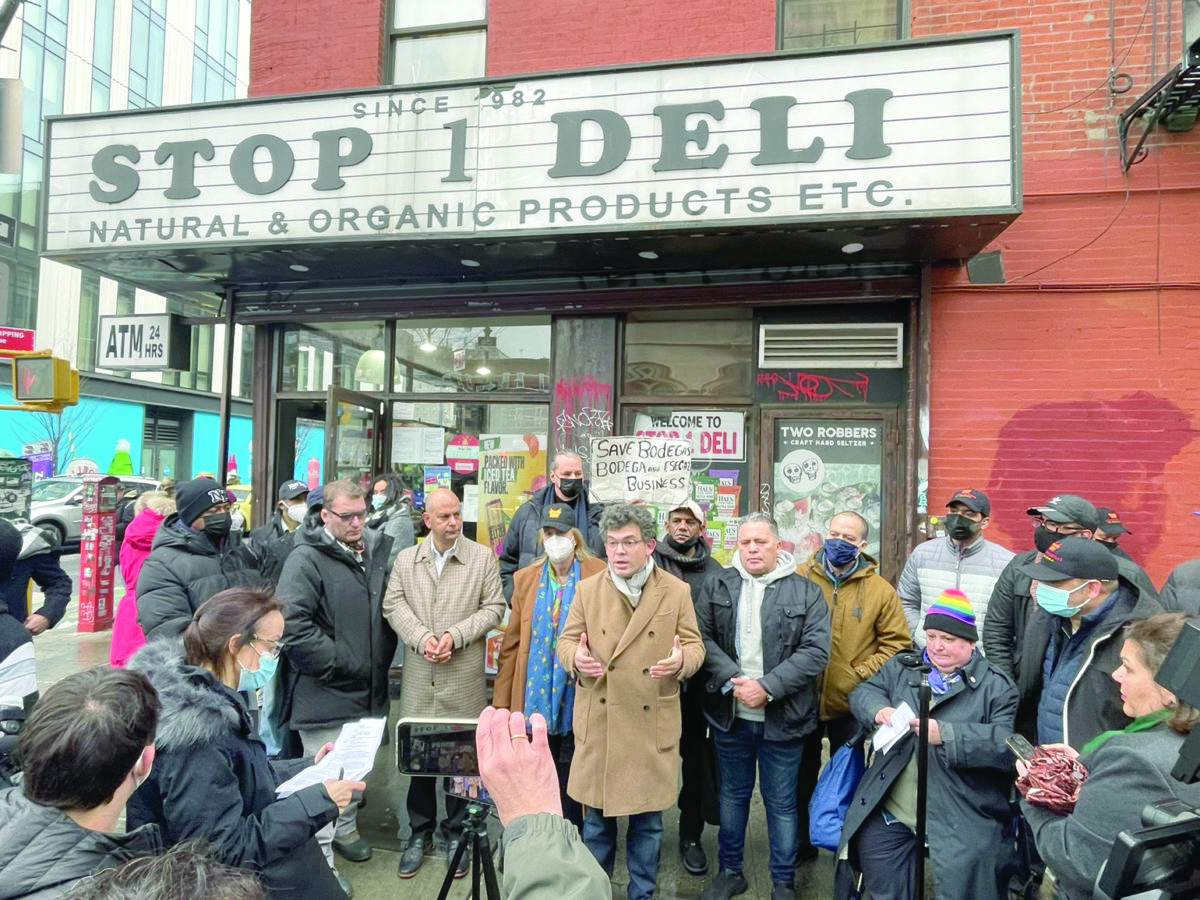It’s Not Just An Ice Cream Truck

When 60s rock and roll star Brian Hyland visited Woodhaven, he was thrilled to see a Mister Softee truck, something he hadn’t seen since his childhood. The Mister Softee truck was just one of many things that adults today can bond over as it was part of their shared experience growing up in Woodhaven.
By Ed Wendell | projectwoodhaven@gmail.com
A city councilman in Brooklyn has introduced legislation that would require ice cream trucks to modify their trucks to power their soft-serve machines with solar or electric, instead of fuel. While the intent is good (it will benefit the environment) the estimated cost of upgrading each truck is so prohibitive (at least $5,000 each) that many vendors may just go out of business.
This could forever silence a welcome sound of summer, that being the Mister Softee jingle that let kids everywhere know that the ice cream man is coming.
Looking back at our own childhoods, I see so very little in common with the experiences that children grow up with today. We were so blessed to grow up in an era where kids were allowed to be kids.
We played outside from early in the morning until the light faded and our mothers called us in. We chased each other and played games like Tag and Ringolevio and Red Light, Green Light 1-2-3. And when we ran out of games to play, we made up new ones.
When was the last time you saw kids playing games in the streets? Last year, I was happy to see a Skully board on the street around the corner from me. A few days later I saw who was using it, a few middle-aged old-timers like me trying to relive their youth, not a kid in sight.
Whenever you do see kids in the street, their faces are glued to their phones, playing games online or looking at who knows what.
Years ago, we looked forward to Saturday mornings as the channels would be full of cartoons and shows geared towards children. We all loved Scooby Doo and Josie and the Pussycats and Bugs Bunny and dozens of other shows that were always entertaining.
When we saw each other we would talk about the latest episodes we had just all seen and we would imitate the characters and re-tell the jokes and share the laughter with each other.
These days, Saturday mornings are no longer known for cartoons; instead, you get infomercials and news programs. Sure, there are dozens of cable channels and shows for kids but the entertainment is so scattered and diffused that they’re often watching different shows from each other.
We all had plenty of local penny candy stores to visit and they brought us so much joy. I remember going into Reap’s on 95th Street and Jamaica Avenue and the owner, Tillie, helping us get the most value for our nickels. We’d run out of there with our candies and share them with each other.
Stores like that just don’t exist anymore. Jamaica Avenue is littered with stores that sell paraphernalia for smoking pot. Not only do we have all the illegal weed stores but even the newsstands and bodegas sell bongs. Heck, the one toy and game store in the neighborhood even has bongs in the front window.
What kind of childhoods are we creating for today’s young kids and future generations? They appear to be devoid of fun and imagination and any time I read about the rise of depression in young kids, I’m so unsurprised.
We’re raising them to be isolated from one another, to become more introverted than sociable and then we pump their brains full of ‘entertainment’ that is full of horrible violence. Can we really be surprised that young people are rioting over video games, like we saw in the city this past week?
There’s an old expression that says, Garbage In, Garbage Out. And if we keep giving our young people a steady diet of garbage we shouldn’t be surprised when they turn out badly. We shouldn’t be surprised when they turn out isolated, depressed and inclined to believe that violence is a solution.
And so, Mister Softee might seem like just an ice cream truck, but it’s a lot more than that. It’s another good piece of childhood being threatened with extinction, like playing games in the streets or Saturday morning cartoons or innocent penny candy stores.
As a result, we’re going to end up with a generation that we will have almost nothing in common with. And I don’t think anyone can save us from that fate. Not even Courageous Cat and Minute Mouse.




